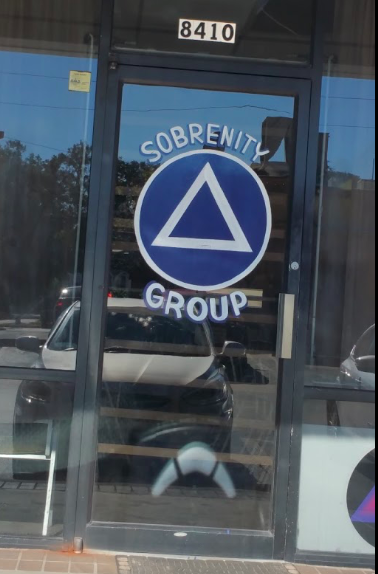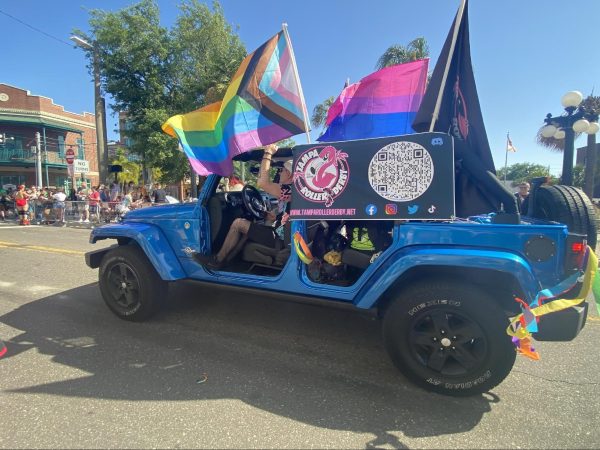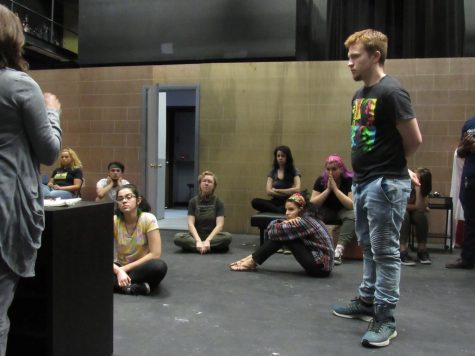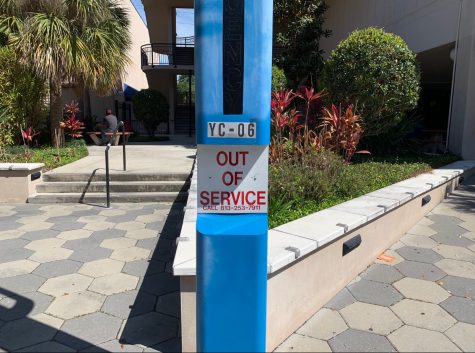Not just an alcoholic

Most people think that Alcoholic Anonymous is just for crazy drunks that sit around and swap drunk stories, but in reality, it is not. AA is a place for recovering alcoholics and sometimes drug users to sit around and support each other in the time of recovery. It was designed to help some recovering alcoholics through life without the crutch or use of alcohol abuse. No one is forced to attend, but it solely by their choice to stop drinking and stay sober.
Most people are familiar with the greeting, “Hi, my name is….and I am an alcoholic.” But there is more to this introduction than people think.
AA is a 12-step recovery program based on Christian beliefs. The 12 steps are a set of principles on how to live life and tackle problems that addictions may have caused. It is also to make amends and live a new life through sobriety and all it entails. According to www.alcoho.org, the first step starts with “We admitted we were powerless over alcohol, that our lives had become unmanageable” and the last step states, “Having had a spiritual awakening as the result of these steps, we tried to carry this message to alcoholics, and to practice these principles in all our affairs.”
AA meetings do not always focus on the 12 steps though, there are also the 12 traditions. Unlike the 12 steps, the 12 traditions focus on more of the individual than the addiction, they are based on the ‘Big Book’ (The Bible).
The first tradition states “Our common welfare should come first; personal recovery depends upon AA unity.”
“The only requirement for AA membership is a desire to stop drinking,” is the one tradition that stuck with a member. When speaking with a frequent member of that particular group, he said it is the most important.
He added, “It has stuck the most because it is the simplest tradition. It has to deal with the simplicity of the program. If you want to stop drinking, it is simple…..just stop by will, and the rest will come with the program that will guide you through sobriety for as long as you work the program.”
Each AA meeting is different whether it be an hour apart or days apart. The one thing that does stay the same though is the readings of the 12 steps and the 12 traditions at the beginning of each meeting to really enforce the program. After the reading through the topics and conversations of the meetings change, the members decide to talk about why they are grateful, how to get through a relationship with sobriety on their side, how to deal with making amends, or even how to work a simple, 9 to 5, day job.
The meeting I attended, the group decided to talk about why they were grateful that day. A women raised her hand, introduced herself as a recovering addict, and said “I am eternally grateful for the cop who pulled me over 20 years ago for driving under the influence, if I would have never been pulled over that night, I could have been dead in a ditch somewhere because I ran off the road or somebody could have been burying their loved one while I sat in jail.”
After the meeting I had the pleasure of meeting up with her to ask why she was so grateful after all this time and she said, “Well it is simple, that cop was able to notice something I was not able to notice and with that I was able to attend rehab, get my life together, and now have been sober for 20 years, but trust me it took me some time to realize how grateful I was to him. At first, I had so much hatred towards the man and did not understand why he was so humble with me and talked to me about rehab and how he saw potential in my life, but now I see what he saw that night and I can only thank God.”
AA meetings are a place for recovering alcoholics to gather and share their path of sobriety. All members of the group were humble and so glad they are living such a sober lifestyle. If you or anyone you know is struggling with a substance or alcohol abuse, there is always AA meetings in your area at just about any time of the day. Visit www.aa.org to find the nearest meeting by you.

Kaitlyn Narvaez is a Staff Writer for The Hawkeye
Kaitlyn Narvaez, 21, is originally from New York but relocated Tampa nine years ago. Narvaez graduated...








